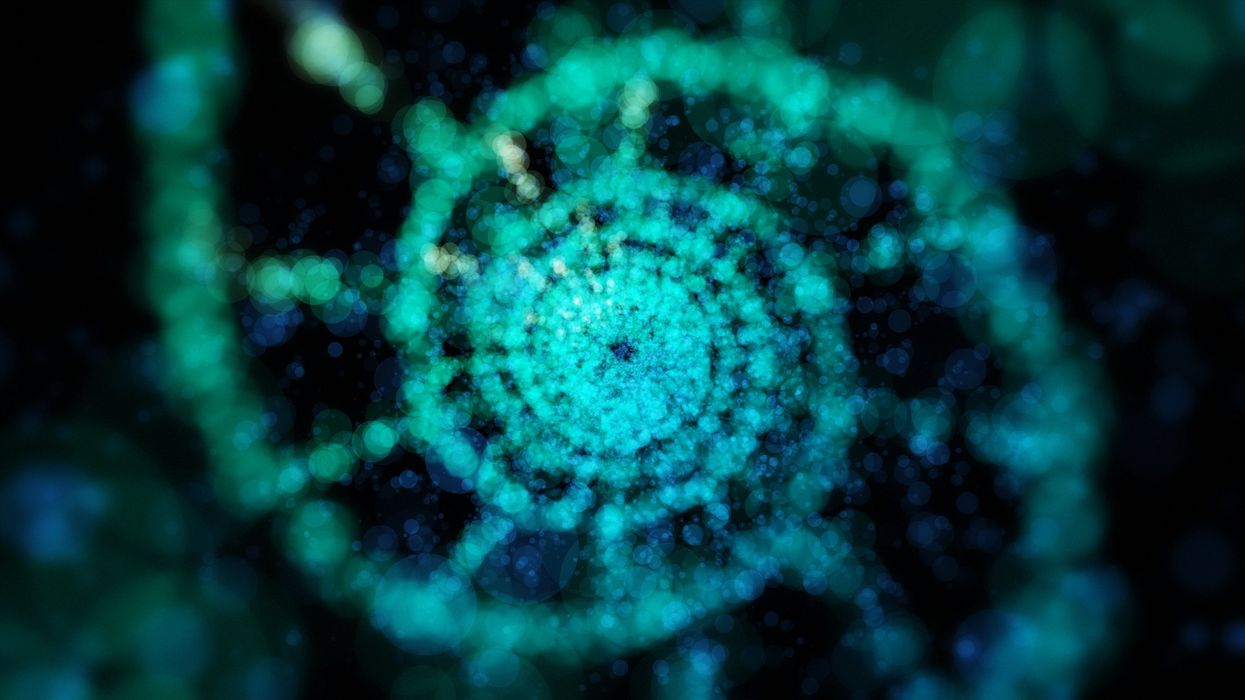Alex Daniel
Sep 25, 2023

Life is partly sustained by self-sustaining chemical interactions
hh5800 / iStock
Scientists have found that one of the key pillars of theory around how life works – that it depends on carbon – may not be the case on other planets.
Here on Earth, life depends on organic compounds which are composed of carbon, and often involve other elements such as sulphur, oxygen, hydrogen, nitrogen and phosphorus.
With organic compounds, life is partly sustained by chemical interactions called autocatalysis, which are self-sustaining.
That means they produce molecules which then enable the reaction to happen again, and do not need any outside influence to keep going on.
In the new study, scientists looked for autocatalysis in non-organic compounds.
The theory is that if autocatalysis helps drive a process called abiogenesis – the origin process for life – then this origin process could also come from non-organic matter.
Betül Kaçar, an astrobiologist, bacteriologist and evolutionary biologist at the University of Wisconsin-Madison, told news outlet Space.com: “It's important to explore these possibilities so that we have an idea of what all forms of life can look like, not just Earth life.”
"One of the major reasons that origin-of-life researchers care about autocatalysis is because reproduction — a key feature of life — is an example of autocatalysis.
“Life catalyses the formation of more life. One cell produces two cells, which can become four and so on.
“As the number of cells multiply, the number and diversity of possible interactions multiplies accordingly.”
The scientists searched in a huge trove of existing scientific documents for examples of autocatalysis, and found 270 different cycles of the reactions.
Most of the 270 examples did not feature organic compounds, but rather elements which are rare in life forms such as mercury, or the radioactive metal thorium.
“It was thought that these sorts of reactions are very rare,” Kaçar said in a statement. “We are showing that it's actually far from rare. You just need to look in the right place.”
Now, it means scientists can test these cycles to get a better understanding of how autocatalysis can work.
“The cycles presented here are an array of basic recipes that can be mixed and matched in ways that haven't been tried before on our planet,” said study author Zhen Peng, also an evolutionary biologist at the University of Wisconsin-Madison.
“They might lead to the discovery of completely new examples of complex chemistry that work in conditions where carbon- or even silicon-based cycles are too either combusted or frozen out.”
The scientists published their findings in the Journal of the American Chemical Society.
Sign up to our free Indy100 weekly newsletter
Have your say in our news democracy. Click the upvote icon at the top of the page to help raise this article through the indy100 rankings.
Top 100
The Conversation (0)













